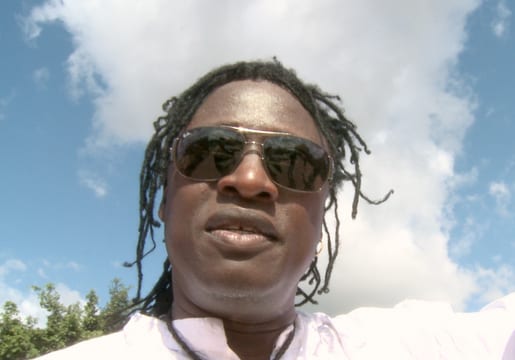Biography
Malian guitarist Habib Koité is one of Africa’s most popular and recognized musicians. Born in 1958 in Thiés, Senegal, Habib comes from a noble line of Khassonké griots, traditional troubadors who provide wit, wisdom and musical entertainment at social gatherings and special events. Habib grew up surrounded by seventeen brothers and sisters, and developed his unique guitar style accompanying his griot mother. He inherited his passion for music from his paternal grandfather who played the kamele n’goni, a traditional four-stringed instrument associated with hunters from the Wassolou region of Mali.
“Nobody really taught me to sing or to play the guitar” explains Habib, “I watched my parents, and it washed off on me.” Habib enrolled at the National Institute of Arts (INA) in Bamako, Mali. In 1978, after only six months, he was made conductor of INA Star, the school’s prestigious band. He studied music for four years, graduating at the top of his class in 1982. (In fact, his talent was so impressive, that upon graduation, the INA hired him as a guitar teacher). During his studies, Habib had the opportunity to perform and play with a series of recognized Malian artists, including Katigui Diabate and Toumani Diabate. He sang and played on Toumani Diabate’s 1991 release Shake the World (Sony), and Katigui Diabate is now a full-time member of Habib’s band. Habib takes some unique approaches to playing the guitar. He tunes his instrument to the pentatonic scale and plays on open strings as one would on a kamale n’goni. At other times Habib plays music that sounds closer to the blues or flamenco. Habib is since 2010 the ambassador of Mali at the UNICEF.
How we met:
We met Habib in Bamako in september 2011 during the recording of “United” a song created trough a partnership between PFC and the United Nations, for the “7 billions” campaign. Mark has been a huge fan of Habib during years and it has been a great honor to meet Habib and record him at his house in Bamako. The day after Habib joined us to visit the Music school of Kirina, created by the Playing for Change Foundation.


